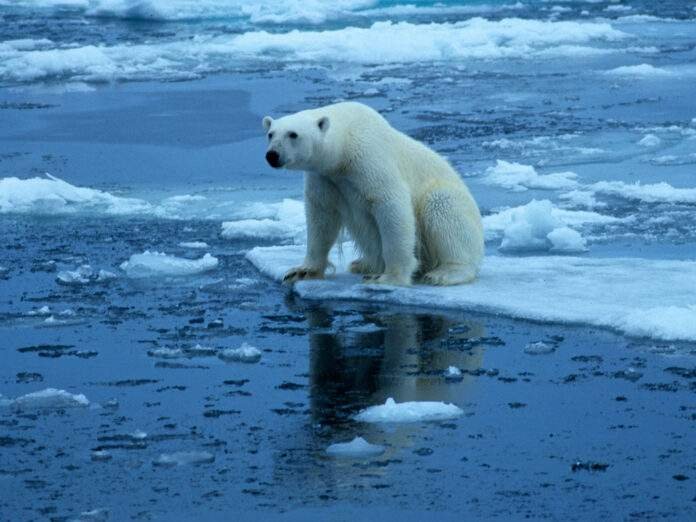Global warming, also known as climate change, stands as one of the most pressing issues of our time. Its impacts are far-reaching, affecting ecosystems, economies, and the well-being of human societies worldwide. As temperatures rise, so do concerns about the future of our planet. In this article, we’ll delve into the causes, consequences, and potential solutions to this multifaceted challenge.
Understanding Global Warming
Global warming refers to the long-term increase in Earth’s average surface temperature. While fluctuations in climate are natural, the current warming trend is unprecedented in both its rapidity and scale. The primary driver behind this phenomenon is the enhanced greenhouse effect, caused by the accumulation of greenhouse gases (GHGs) in the Earth’s atmosphere. These gases, such as carbon dioxide (CO2), methane (CH4), and nitrous oxide (N2O), trap heat from the sun, preventing it from escaping back into space. Human activities, particularly the burning of fossil fuels, deforestation, and industrial processes, have significantly increased the concentration of these gases, intensifying the greenhouse effect and leading to global warming.
Consequences of Global Warming
The consequences of global warming are diverse and profound, affecting both natural and human systems. One of the most visible impacts is the alteration of weather patterns, leading to more frequent and severe extreme weather events such as hurricanes, droughts, heatwaves, and heavy rainfall. These events not only pose immediate threats to human lives and infrastructure but also disrupt ecosystems, agriculture, and water resources, exacerbating food insecurity and economic instability.
Rising temperatures also contribute to the melting of polar ice caps and glaciers, leading to sea-level rise. This phenomenon threatens coastal communities and low-lying islands with inundation, erosion, and saltwater intrusion, displacing millions of people and causing the loss of vital habitats and biodiversity. Furthermore, ocean warming and acidification endanger marine ecosystems, jeopardizing fisheries and coral reefs, which support livelihoods and provide essential services such as shoreline protection and carbon sequestration.
Beyond environmental impacts, global warming exacerbates social and economic inequalities, disproportionately affecting vulnerable populations such as the poor, elderly, and marginalized communities. These groups often lack the resources and infrastructure to adapt to climate change, amplifying existing disparities in health, education, and access to basic services.
Addressing Global Warming
Given the magnitude of the challenge, addressing global warming requires concerted efforts at the individual, community, national, and international levels. Transitioning to a low-carbon economy is paramount, necessitating a shift away from fossil fuels towards renewable energy sources such as solar, wind, and hydropower. This transition not only reduces greenhouse gas emissions but also promotes energy security, creates green jobs, and stimulates economic growth.
Improving energy efficiency is another critical strategy for mitigating global warming. By reducing energy consumption in buildings, transportation, and industry through technological innovations and behavioral changes, we can minimize greenhouse gas emissions while simultaneously saving money and enhancing productivity.
Protecting and restoring natural ecosystems such as forests, wetlands, and mangroves is also essential for combating global warming. These ecosystems act as carbon sinks, absorbing and storing significant amounts of CO2 from the atmosphere. Preserving biodiversity and ecosystem services not only mitigates climate change but also enhances resilience to its impacts, providing benefits such as clean air, water, and soil, as well as habitat for wildlife and opportunities for recreation and tourism.
Furthermore, adaptation measures such as enhancing infrastructure resilience, implementing early warning systems, and promoting sustainable agriculture and water management practices are crucial for minimizing the impacts of global warming on vulnerable communities and ecosystems. Investing in education, research, and capacity building is also essential for fostering climate literacy, innovation, and collaboration, empowering individuals and societies to take informed action against climate change.
Conclusion
Global warming poses a significant threat to the health, prosperity, and stability of our planet. To address this challenge effectively, we must act decisively and cooperatively, adopting a holistic approach that integrates mitigation, adaptation, and sustainable development strategies. By transitioning to a low-carbon, resilient, and equitable future, we can safeguard the well-being of current and future generations and preserve the precious diversity and beauty of our planet for years to come. Let us heed the call to action and work together to create a sustainable and thriving world for all.
ALSO READ: ALLEGED EXTORTION BY BIR LACHIT SENA YOUTHS SPARKS INVESTIGATION IN GUWAHATI











